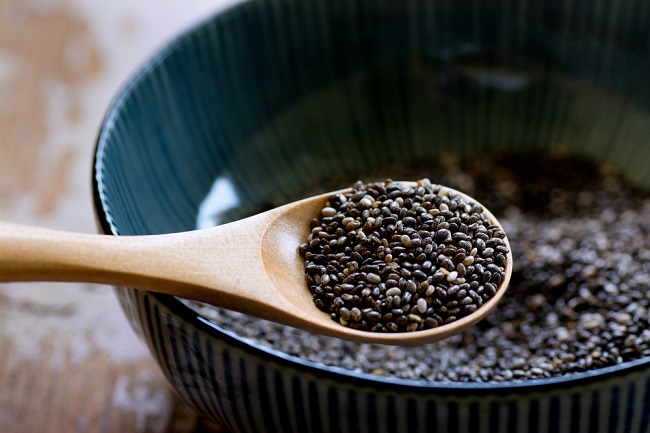Motor nerve disease causes sufferers to be unable to walk, talk, or even breathe without assistive devices. Without proper treatment, this condition not only hampers daily activities, but can also threaten the life of the sufferer.
Motor nerves are a collection of nerves in the brain, spine, and muscle tissue that regulate the function of body muscle movement. Motor nerves work allows a person's body to perform various activities.

Motor nerve diseases are a group of rare diseases that damage the body's motor nerve tissue and make it not function properly. This makes the brain unable to send signals to the muscles of the body, so people with motor nerve disease are unable to move their bodies.
Over time, the body's muscles will weaken and begin to shrink as the body loses control of movement. People with motor nerve disease will find it difficult to walk, talk, swallow, and breathe, and even experience paralysis.
The most common types of motor nerve disease are: amyotrophic lateral sclerosis (ALS) or Lou Gehrig's disease.
Causes and Risks of Motor Nerve Disease
Until now, the cause of motor nerve disease is not known with certainty. However, there are several factors that are known to increase a person's risk for developing motor nerve disease, including:
genetic factors
Genetic disorders can cause a person to experience motor nerve disease. In addition, motor nerve disease can also be inherited, so your risk of developing this disease will be greater if you have a family history of motor neuron disease.
Exposure to toxic substances
One of the factors that can also increase a person's risk for developing motor nerve disease is exposure to toxic substances.
Several studies show that most people with motor neurone disease have been exposed to heavy metals, mercury, arsenic, chromium, lead, and pesticides in the long term or in large quantities.
Age
This rare motor nerve disease is also more common in men over the age of 60, although it can occur in women and people of all ages.
In addition, someone who has a history of certain diseases, such as autoimmune disorders and dementia, is also said to be more at risk of developing motor nerve disease.
Beware of the Symptoms of Motor Nerve Disease
Motor nerve disease can cause disorders of the motor nerve network in the brain and spinal cord. This causes the muscles to gradually weaken and become difficult to control.
Motor nerve disease also makes the sufferer's muscle movements become slower and feel heavy. Gradually, this disease makes the sufferer's body paralyzed or completely unable to move.
In addition, motor nerve disease can also cause the following symptoms:
- Difficulty grasping or lifting an object
- Body muscles feel stiff and paralyzed, including facial muscles
- Weakened legs, resulting in frequent falls, tripping, or difficulty climbing stairs
- Speak not clearly and salivate a lot
- Difficult to swallow
- Weight loss
- Can't control crying, laughing or yawning
The above symptoms do not appear suddenly, but gradually over a span of several weeks or months, then will get worse and persist after a few years. Symptoms of motor nerve disease also usually start on one side of the body.
Handling Motor Nerve Disease
Symptoms of motor nerve disease are sometimes difficult to diagnose because they can mimic the symptoms of other diseases, such as: multiple sclerosis and polio. Therefore, people who experience symptoms of motor nerve disease or are at risk of developing this disease need to undergo a neurology consultation with a neurologist.
To determine the diagnosis, the doctor will perform a complete physical examination accompanied by a neurological examination and supporting examinations, such as:
- Cerebrospinal fluid analysis
- blood test
- Electromyography (EMG)
- Examination of electrical conduction in motor nerves
- MRI
If the results of the doctor's examination indicate that the patient does have motor nerve disease, the doctor can provide various treatments.
The treatment steps taken are generally not able to cure the disease, but can relieve the symptoms that appear and help the sufferer to be able to carry out normal activities.
The following are some treatments that can be given by doctors to treat motor nerve diseases:
Administration of drugs
There are several types of drugs that can relieve the symptoms of motor nerve disease, namely:
- Riluzole and edaravone, to protect motor nerves from further damage and slow the progression of the disease.
- Baclofen, phenytoin, and benzodiazepines, to relieve stiff body muscles and reduce the intensity of cramps that appear.
- Anticholinergics, such as atropine and trihexyphenidyl, to reduce the production of saliva. This type of drug is sometimes given at the same time as an injection botulinum toxin to reduce the formation of saliva as well as overcome stiff muscles.
- Antidepressants, such as amitriptyline or fluvoxamine, to treat depression.
Physiotherapy
Physiotherapy can improve posture, reduce stiff muscles and joints, maintain muscle strength, and slow muscle weakness.
In addition to stretching the body, people with motor nerve disease can also get additional therapy by a physiotherapist if they have difficulty speaking, chewing, and swallowing.
Patients with motor nerve disease can also be given assistive devices, such as leg braces or wheelchairs, to keep them active.
Occupational therapy
In addition to physiotherapy, patients with motor nerve disease can also perform occupational therapy under the supervision of a medical rehabilitation specialist. Through occupational therapy, patients with motor nerve disease will be assisted and trained to be able to carry out activities independently without much help from others.
Motor nerve disease is a dangerous neurological disease that can affect the sufferer's quality of life. Therefore, if you experience various symptoms of motor nerve disease as previously mentioned, immediately go to a neurologist to undergo an examination and get the right treatment.









